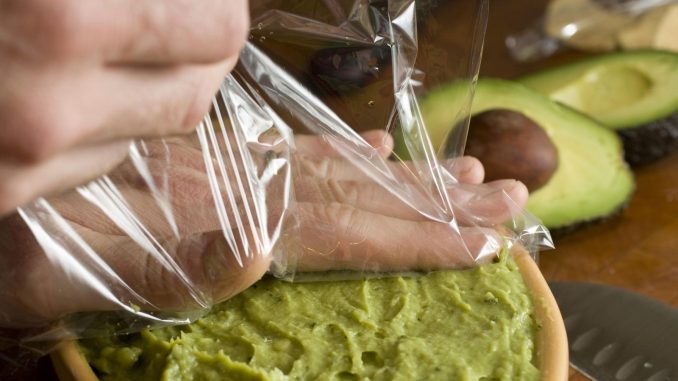
When Americans gather to watch the Super Bowl on Sunday, the culinary choices may be as important as the final score.
Because the event can stretch for more than four hours, that raises the risks of foodborne illness if party hosts and guests aren’t careful.
Preparing and keeping foods at the right temperature, avoiding cross contamination — no double-dipping! — and being mindful about leaving out perishable snacks like chicken wings, meatballs and veggie platters are all keys to keep people from getting sick, health experts said.
Here’s a game plan to party safely:
Many items that could wind up on a Super Bowl spread have been recalled this week after a deadly outbreak of listeria food poisoning.
Check your refrigerator for bean dips, enchiladas, soft cheeses, sour cream and taco kits produced by Rizo Lopez Foods — some were sold at Costco, Trader Joe’s and Albertson’s.
For the full list of recalled foods, see the U.S. Food and Drug Administration website.
Foodborne illness can be caused by a range of harmful bacteria, including listeria, salmonella, E. coli and others.
In small amounts, the contamination may not be harmful. Problems occur when foods that harbor the bacteria remain at room temperature for too long, allowing the bugs to multiply to potentially dangerous levels, said Joanne Slavin, a professor of food science and nutrition at the University of Minnesota-Twin Cities.
By the fourth quarter, the bacteria may be winning, she said: “People are eating things that have been sitting out for a while.”
In general, perishable foods like chicken wings, deli wraps, meatballs and even fresh vegetables and fruit should be left out for no more than two hours, the U.S. Department of Agriculture advises.
Put out small amounts of food and replenish the platters frequently.
One major way to avoid illness: Prepare and serve all foods — takeout or home-cooked — at the proper temperature.
“To me, it’s about keeping cold food cold and hot food hot,” Slavin said.
Use a food thermometer to make sure that meats are cooked to proper temperatures, including 145 degrees Fahrenheit for whole meat, 160 F for poultry and 165 F for leftovers and casseroles.
Bacteria multiply rapidly between 40 degrees F and 140 F. Keep cold foods in the fridge until just before serving or nestle the food in ice. Keep hot foods at 140 F or above by using a preheated oven, warming trays, chafing dishes or slow cookers, the USDA said.
In the excitement of a close game, it can be easy to skip simple steps. But it’s important to remember some fundamental rules.
1. Wash your hands for 20 seconds before and after handling raw meat and poultry.
2. Clean all surfaces and utensils with soap and warm water before and after contact with raw meat, and sanitize surfaces with a commercial or homemade solution that contains bleach.
3. Use separate cutting boards, plates and utensils for raw meat and poultry and ready-to-eat foods.
4. Be aware of cross contamination when snacking. “Double-dipping? Now that does bother me,” Slavin said. Solution: Spoon a small amount of dip onto a plate so you don’t contaminate the whole batch with your saliva or germs from your hands.
___
The Associated Press Health and Science Department receives support from the Howard Hughes Medical Institute’s Science and Educational Media Group. The AP is solely responsible for all content.


Be the first to comment